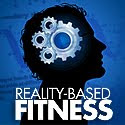

As a fitness-enhancement coach and massage therapist, I am often asked my opinion on various fad diets, nutritional products, and supplements. Since I also happen to be a skeptic, I kind of see my role as being a consumer advocate to help people navigate their way through the unregulated and confusing health & supplement industry.
One of the newer group of supplements that has become VERY popular in the last decade are the Superfruit juices made from exotic fruits such as Acai, Goji, Mangosteen and Noni. Many of the products containing these juices make claims that are almost unbelievable as no disease or condition isn't cured or at least improved by the daily consumption of these miraculous juice products! Since the price of these products is often very high, much higher than that of regular fruit and vegetables, it raised my skeptical eye quite a bit.
Many of these products are also sold only by "distributors" who have joined in the multi-level marketing scheme which has to raise a little more suspicion. Being a science-based practitioner, I wanted to see if there was any real evidence (not just miracle anecdotes) to back up the claims made by the distributors of these products. I was delighted to find a credible study done in Australia.
In 2007, CHOICE, the Australian version of Consumer Reports, tested 9 different superjuice products that covered all of the popular superfruits (goji, noni, acai, and mangosteen). They tested these products for what is called Total Antioxidant Capacity (TAC) and compared them to the TAC of a common store-bought Red Delicious Apple (TAC content=5900).
The Results
Not surprising to me, the Apple outperformed all of the chosen juices in TAC for only a fraction of the cost. To read the full article by CHOICE, go to the following link:
For those of you who are taking these type of products or know someone who does, reading the CHOICE study is a very eye-opening experience that may save you or someone you know hundres and maybe even thousands of dollars each year. Of course, for those who are heavily vested in the business side of these juices, it's probably not really about the juice since network marketing is more about making money than it is about the particular product being sold.
Also, for the interested reader, check out the following blog post made Steven Novella, a clinical neurologist, president of the New England Skeptical society, and creator of the Science-Based Medicine blog: http://www.sciencebasedmedicine.org/?p=46
And another informative post that might be of interest is the written version of the podcast created by skeptic Brian Dunning of Skeptoid.com :
The Bottom Line
While the products tested certainly contained some anti-oxidant capacity and other essential and non-essential nutrients, they were not even up to par with a common apple. The price of these prodcuts alone should raise some skepticism in consumers, espcially when they are attached to a Network Marketing sales strategy. Why not just try to eat more fruits and vegetable in general and put the rest of your money to some other cause or activity that interests you? To end with some practical advice, here's a sample day of how one might increase his/her fruit and veggie consmption to attain the 5-9 servings recommended:
Breakfast: add 1/2 cup mixed berries to Oatmeal or a Breakfast Smoothie.
Mid-morning snack: small apple with string cheese or handful of mixed raw nuts.
Lunch: 1-2 cups leafy greens (i.e. spinach) with protein of choice and other mixed veggies/legumes.
Mid-afternoon snack: 1/2 cup mixed berries in protein smoothie
Dinner: 1 cup green veggies (broccoli, green beans, etc..)
For more ideas of how to get in more servings of fruits and veggies check out:







No comments:
Post a Comment